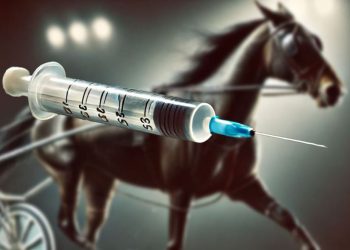Theres bipartisan support in Trenton for a measure one critic decries as an insult to the taxpayers of New Jersey.
New Jersey lawmakers are looking to revive taxpayer-funded subsidies for the horseracing industry with legislation that would provide a total of $100 million over the next five years.
A bipartisan bill seeks to establish a $20 million annual subsidy to boost the purses that can be won at horse tracks operating in New Jersey; it has already been approved by the state Senate and is now awaiting adoption in the Assembly.
Sponsors and other supporters of the legislation say it will provide a much-needed “shot of adrenaline” for an industry that was once a roughly $1 billion sector of the state economy and still helps to support thousands of jobs while also maintaining the viability of many farms in rural regions of New Jersey.
But critics have labeled the proposed taxpayer-funded subsidy a “bailout” and are questioning how a state with perennial budget problems could afford to cover the annual payments that would be promised under the proposed legislation.
Horseracing has long been a part of New Jersey’s sports landscape, with Freehold Raceway and Monmouth Park both tracing their roots to the 1800s. Both tracks are still operating today, and the state’s other remaining horse track is in the Meadowlands, where races started being held in the 1970s.
Fewer people are going to the track
The tracks used to draw huge crowds in their heyday and at one point also received subsidies from the Atlantic City casino industry to help boost purses that attracted the best horses in the country to compete. But the industry’s popularity has waned in recent years and former Gov. Chris Christie ended the subsidies as the Atlantic City casino industry faced its own economic troubles in the wake of the Great Recession.
The racetracks got a boost last year when state lawmakers adopted sports-betting legislation in the wake of a major U.S. Supreme Court ruling that made licensed tracks and casinos the only places in New Jersey that are allowed to offer and profit from in-person sports betting. Initial returns suggest the sports-betting operations have been hugely successfully, with nearly $1 billion bet in the state since sports gambling was legalized last June.
But lawmakers say they remain concerned about the health of the horseracing industry amid stiff competition from other states that already use tax dollars to subsidize purses. They have pitched the proposed taxpayer subsidies as a way to help sustain the estimated 13,000 jobs that are still connected to New Jersey’s horse industry. Bill sponsors also point to more than 175,000 acres of farmland that are sustained by the industry.
- Credit: Wikimedia Commons Sen. Vin Gopal (D-Monmouth)
“This will be a huge help for the horseracing industry that is an important part of New Jersey’s heritage and culture and a key source of jobs and economic activity,” said Sen. Vin Gopal (D-Monmouth).
The bill calls for the state to provide $20 million during each of the next five years to subsidize the purses at all three of the state’s privately-run racetracks. The money would come out of the state budget’s general fund starting with the current fiscal year if the bill is signed into law before June 30.
Something for owners and trainers too
The legislation calls for the money to be split between the purses awarded for thoroughbred racing at Monmouth Park and harness racing at the Meadowlands and Freehold. Some funding would also be set aside for “purse bonuses for New Jersey sired horses” as an additional boost for winning horses bred in New Jersey.
The legislation requires the racetracks where sports betting operations have already been established to enter into formal profit-sharing agreements with the groups representing the state’s thoroughbred owners and trainers, and the state’s owners and trainers of standardbred horses, which are used for harness racing.
A.J. Sabath, who represents the state’s standardbred breeders and owners, told lawmakers during a hearing last month that the horseracing industry has faced “a long road to recovery” in New Jersey.
“We feel that this purse-supplement money as well as the ability to enter into agreements with sportsbook operators at the racetracks will provide a necessary shot of adrenaline into the horseracing industry,” Sabath said.
The measure was approved unanimously by the full Senate in late December and is expected to come up in the Assembly as early as this month.
‘Corporate welfare’
Despite its bipartisan support among lawmakers not everyone is hoping the bill is ultimately signed into law.
Critics note the state budget is already severely strained by one of the worst-funded public-employee pension systems in the country. It’s also not clear where the revenue for the $20 million annual subsidy would come from as the legislation doesn’t create a dedicated source of funding for it.
Erica Jedynak, state director of Americans for Prosperity-NJ, a group that espouses free-market values, called the proposed subsidy “an insult to the taxpayers of New Jersey.”
“Where’s the bailout for the average resident paying property taxes? If it was a successful industry, it would prosper without the dollars of hardworking New Jerseyans,” Jedynak said.
She urged lawmakers to resist the temptation to keep pace with taxpayer-funded horseracing subsidies that are being offered to the horseracing industry by other nearby states.
“Upping the ante for corporate welfare is a race to the bottom,” Jedynak said.
By John Reitmeyer

 USA
USA Canada
Canada Australia
Australia New Zealand
New Zealand Europe
Europe UK / IRE
UK / IRE



